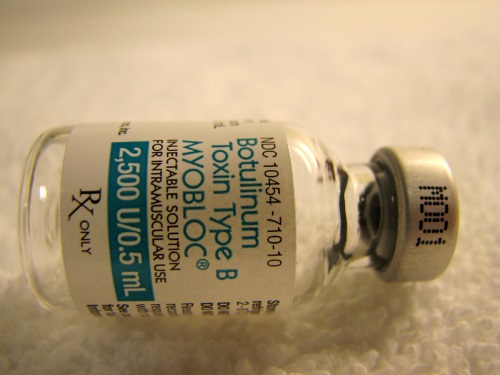Botox - not just skin deep
16 May 2014
By Plastic Surgeon Dr Dirk Kremer.
 Botulinum toxin, informally know as
Botox, is primarily thought of as a chemical used in cosmetic procedures where it is injected into the muscle blocking the receptors for the neurotransmitters in the muscles so that the neural signal is blocked and the muscles are no longer stimulated, providing a smooth, taut, wrinkle-free appearance. This is indeed one of its main uses, however Botox is also used in many medical treatments such as curing chronic
sweating, treating muscle disorders, and new studies even suggest that Botox could be used to treat severe asthma and depression.
Botulinum toxin, informally know as
Botox, is primarily thought of as a chemical used in cosmetic procedures where it is injected into the muscle blocking the receptors for the neurotransmitters in the muscles so that the neural signal is blocked and the muscles are no longer stimulated, providing a smooth, taut, wrinkle-free appearance. This is indeed one of its main uses, however Botox is also used in many medical treatments such as curing chronic
sweating, treating muscle disorders, and new studies even suggest that Botox could be used to treat severe asthma and depression.
Sweating
Dealing with severe sweating can be embarrassing and uncomfortable, but for those who really suffer from sweating, injecting Botox into the sweaty areas (armpits, feet…) can solve the problem. The injection of Botox does not mean that the sweat goes somewhere else or is backed up, it simply means that chemical signals are blocked from the nerves that stimulate the sweat glands. Botox has particularly proven to be a very successful treatment for excessive underarm sweating and sweaty feet.
Chronic Migraine
The use of Botox for migraines was licensed in 2010 by the Medicines and Healthcare products Regulatory Agency (MHRA). It is not yet known why Botox is effective for migraines as it is not thought to work like other pain management treatments which relax muscles. It is believed that Botox stops the release of peripheral nociceptive neurotransmitters in the body, which may then have an effect on the central pain processing systems, therefore stopping migraines. Trials have found that Botox is currently only effective for chronic migraine and does not work for other types of headaches.
 Depression
Depression
A recent study entitled "Treatment of depression with onabotulinumtoxinA: a randomized, double-blind, placebo controlled trial", which will be included in this month’s publication of the Journal of Psychiatric Research, experimented on 74 participants who suffered from depression; one half were injected with Botox, the other half with a placebo. Depressive symptoms were then measured using the Montgomery-Asberg Depression Scale (MADRS) and it was found the group who received the Botox treatment recorded a 47% reduction in their MADRS scores after 6 weeks compared to 21% for the placebo group. The study was particularly significant as it has found a treatment that can help people suffering with depression without conflicting with any other existing medications. The reason behind the improvement of depressive symptoms after Botox treatment has been linked to previous studies which claim facial expressions have a direct impact on mood and the inhibition to frown created by insertion of Botox would boost the mood of the patient.
Asthma
For most people, inhalers and other conventional treatments are enough to control asthma, however people who suffer from chronic asthma don’t appear to respond to these methods. Chronic asthma is caused by abnormal vocal cord movement where the vocal cords can start spasming, making it hard for the person to control their breathing. Participants of a study which was carried out by researchers at Monash University in Australia had Botox injected into their vocal cords to relax them, improving asthma control and airway size. The results of the first trials are promising, however it is important to bear in mind that this is a relatively new study which has so far only been tested on 11 participants.
Muscle disorders
One of the main known uses of Botox is to relax muscles and block nerve impulses in the body which can be a therapy option for many different conditions. Using Botox as a relaxant and nerve blocker has helped people with a variety of disorders from urinary incontinence and eye muscle disorders to cervical dystonia and cerebral palsy.
If you are interested in Botox injections for cosmetic reasons, please feel free to get in touch with Harley Street Aesthetics to find out how Botox can help your skin achieve a natural wrinkle-free look.
Virtual Consultations
Dr Kremer is now accepting virtual consultations, via Skype or WhatsApp. If you would like a virtual consultation, or would like more information, simply get in touch with us via phone, email or through our contact form and we will schedule a date and time for your consultation.



